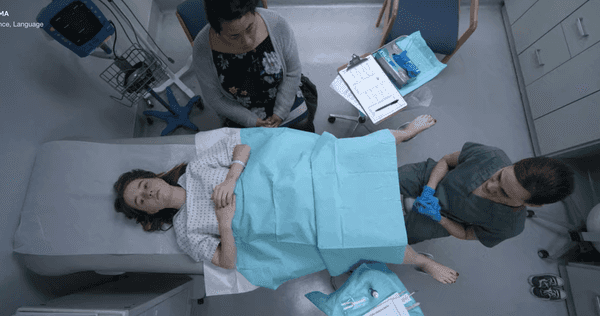I’d like to consider myself pretty well-educated for a 21-year-old. I have always been an A and B student, and in my five semesters of “higher education,” I have consistently been on the Dean’s List. I’m big on researching things outside of the classroom because I am a firm believer that learning doesn’t end in school. However, a few days ago, I came to the realization that I have very little knowledge about a very big topic: sex.
Yes, I am aware of the birds and the bees; I know where babies come from and I know it is best to double up on birth control because not one form is 100 percent effective. What I realized is that I am not very conscious of one of the most vital topics when it comes to sex: consent. Not the “no means no,” aspect of consent, I am talking about the nitty-gritty social issues that have created what is now known as rape culture.
As I said before, I would like to consider myself to be a pretty intelligent person. However, while editing articles for Odyssey, I realized I had no idea what the difference between rape and sexual assault is. To be completely honest, I wasn’t even sure if there was a definitive difference. (For the record, rape is when there is unwanted penetration and sexual assault is unwanted sexual contact). The fact that only a few days ago I learned this information is unacceptable and it speaks volumes on the unfortunate state of sex education in America.
On top of my sufficient levels of education, I began having sex over five years ago, losing my virginity during my second year of high school. This begs the question: How can a sexually active honors student who is an advocate for self-education know so little about consensual sex? The answer, unfortunately, lies in the fact that throughout my educational career, I learned little to nothing about sex other than forms of birth control and the way puberty works.
According to the National Sexual Violence Resource Center, in the United States “one in five women and one in 71 men will be raped at some point in their lives.” That is unacceptable. However, one statistic truly jumped out at me: in the U.S., “nearly one in 10 women have been raped by an intimate partner in her lifetime.” This one statement hits so hard for me mainly because I know so many women, and men, who have had nonconsensual encounters with sex but had no idea of the seriousness of what really happened, because we are not taught that consent is important.
I remember learning how important it is to wait if possible, but if you were going to have sex, it is important to get tested and always use protection. The subject of consent was often an afterthought; a rushed reminder that no means no and anything beyond no is rape. I was never taught about the pressuring guilt I would feel as a 15-year-old with a long-term boyfriend. I was never taught that you don’t have to go all the way to keep someone’s attention. I was never taught that it’s okay to change your mind even if you’re already undressed. I was never taught that you don’t have to hug all of your guy friends, and most importantly, I was never taught that my body was 100 percent mine.
I will never forget the countless times I have been with guys and gone further than I was comfortable with because I was afraid to be labeled as a “tease.” Only once has a guy ever asked me “is this okay?” or “should I keep going?” That is something I didn’t even know I took for granted until recently. Even after some sexual encounters that were blatantly inappropriate, I internalized the emotions, rationalizing them by believing that I had somehow led the guy on. Even when I audibly and repeatedly said “no,” I still believed it was my own fault.
Not until I started hearing the stories of other women in similar situations did I realize that I am a victim of sexual assault. Now, I see that it took me so long to come to this understanding because I was never taught what consent really is. I was taught that sex is okay as long as you’re safe. I learned that “boys will be boys,” to always stay with your group of girls and to never leave your drink unattended. Those same boys I was taught to defend myself against were taught by society that a girl with a short skirt is asking for it, and that if she flirts with you, that means she wants it. We heard, “he didn’t know better,” and “she should have stayed home.”
What we needed to learn is that we all should know better and we all should feel safe and respected while having fun. No one should feel guilty or pressured to do anything with their bodies that they don’t want to do. We should be taught that yes, protection is great, abstinence is cool, and getting tested is amazing. But we also need to teach mutual respect and being aware of people’s boundaries; that should be common courtesy. We need to teach about consent.





















